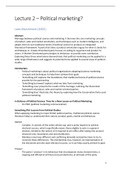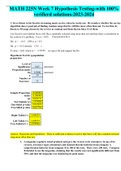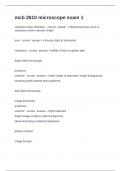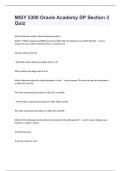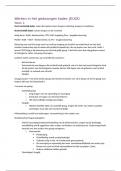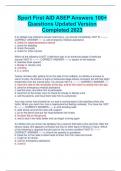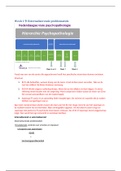Samenvatting
Summary Only Literature Week 2-7 Political Marketing Campaigns and Voters
- Instelling
- Universiteit Van Amsterdam (UvA)
Dit is een uitgebreide samenvatting van alle literatuur voor Topic Political Marketing, Campaigns and Voters. Dit betekent dat alle literatuur passend bij lecture 2 t/m lecture 7 in deze samenvatting is verwerkt.
[Meer zien]
